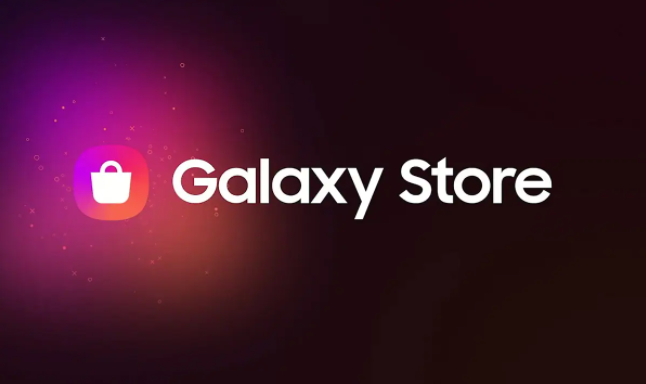
Loading...
Free consultation with ASO specialists
Doing ASO for the first time or have no idea how to carry out targeted optimization of your app?
We offer one-on-one customized services provided by app marketing specialists
Samsung Galaxy Store reduces its revenue share to 20%, bringing significant changes to the developer ecosystem
2025-03-27

Samsung Galaxy Store reduces its revenue share to 20%, bringing significant changes to the developer ecosystem
——The Ambition Behind the Low Commission Strategy and the Signal of Industry Reorganization
Samsung announced a historic adjustment in the revenue sharing ratio, with developers' income potentially increasing by up to 30%
In March 2025, Samsung officially announced a revolutionary change in its revenue-sharing policy for the Galaxy Store: starting from May 15, the developer's share of revenue from game applications and in-app purchases will increase from 70% to 80%, while the commission rate for subscription services will be reduced to 15%. This adjustment makes Samsung the first major platform globally to reduce the commission rate for mainstream application categories to below 20%, directly challenging the long-standing "30% platform tax" rule dominated by Apple's App Store and Google's Play Store.
Take a game priced at $10 as an example, developers will earn an additional $1 on Galaxy Store. If the streaming revenue from cloud gaming distribution is added, the total income may be 30% higher than that of traditional channels. This move is seen as a key strategy for Samsung to compete for developer resources and reshape the mobile ecosystem landscape.
Why did Samsung take the lead in "benefiting" developers?
-
Breaking the Monopoly: A "Yang Plot" Targeting Apple and Google Apple and Google's application store commission model has long been called a "monopoly tax" by developers, especially placing a heavy burden on small and medium-sized teams. Samsung's 80/20 revenue sharing model directly increases developer earnings by 10%-15%, creating significant appeal. For example, if an independent game developer migrates to the Galaxy Store, their annual income could increase by tens of thousands of dollars, which is extremely tempting for teams with limited resources.

-
Mobile business under pressure: software ecosystem becomes the key to breaking the deadlock In 2024, Samsung's global smartphone shipments were overtaken by Apple, with its market share in the high-end segment declining to 18%. By reducing commissions to attract quality applications (such as Genshin Impact and Star Rail) to prioritize compatibility with Galaxy devices, Samsung can enhance user stickiness and drive "hardware + service" synergistic growth. For example, if S25 series users choose Samsung phones due to exclusive games, their software service revenue during the device's lifecycle may increase by more than 20%.
-
AI and Cloud Gaming: Ecological Bundling under Technological Dividends Samsung has simultaneously opened its cloud gaming distribution platform, allowing developers to reach users directly through streaming technology without the need for downloads. Combined with the underlying optimization of Exynos chips (such as HBM memory accelerating AI computing), developers can create more complex scene rendering and real-time interaction features, forming a deep integration of "Samsung hardware + developer content."
The three major differentiated advantages of the Samsung App Store
In addition to the revenue-sharing policy, Galaxy Store demonstrates unique competitiveness in terms of technical integration and developer support:
-
Vertically integrated hardware-software ecosystem
-
Chip-level optimization: The Exynos chip supports developers in utilizing GPU and NPU resources, achieving a 40% increase in AI inference speed and reducing power consumption for large games.
-
Cross-device collaboration: The One UI 4.1 system allows applications to seamlessly adapt to Galaxy phones, watches, and tablets, enabling users to switch between different devices (such as casting mobile games to a tablet).

-
Developer Support Program
-
Special subsidies for small and medium-sized enterprises: In addition to an 80% revenue share, Samsung provides free cloud server resources and technical certification training to reduce development costs.
-
AI Toolkit Open: Covers APIs for speech recognition, image generation, etc., allowing developers to quickly integrate AI features (such as real-time translation, AR filters).
Industry Impact: A Silent Revolution is Brewing
-
Developer migration trend may accelerate According to analyst predictions, the number of game applications on Galaxy Store may increase by 35% before Q4 of 2025, especially in Southeast Asia and India markets, where small and medium-sized developers may collectively shift.
-
Apple and Google are forced to respond. Google has announced that it will maintain a 30% commission, but internal documents show that it is testing a "tiered revenue sharing" model (dropping to 25% after annual income exceeds $1 million). Apple may respond by expanding the coverage of its "Small Business Program" (such as raising the commission threshold from $1 million to $5 million).
-
User and market chain reaction An increase in developer revenue will drive more exclusive applications to land on the Galaxy Store, creating a flywheel effect of "high-quality content - user growth - developer benefits." Morgan Stanley predicts that Samsung's global market share for mobile phones may rebound to 22% by 2025, partially reclaiming the high-end market eroded by Apple.
Future Outlook: Can Samsung Rewrite the Rules of the Game?
Samsung's commission reform is not just a short-term strategy, but also a crucial part of its long-term ecosystem layout. By leveraging the benefits of AI, cloud gaming, and other technologies, Samsung aims to make Galaxy Store a benchmark for "developer-friendly" platforms. However, challenges still remain:
-
Platform operating costs: Low commissions may affect the investment in application review and security maintenance, and a balance needs to be struck between developer concessions and user experience.
-
Countermeasures by giants: Apple and Google may curb Samsung's expansion through closed ecosystems (such as limiting cross-platform features).
Conclusion
Samsung's new revenue-sharing policy marks the entry of the mobile application ecosystem into an era of "low-revenue sharing competition." Its success or failure will not only affect developers' wallets but also determine the power dynamics of the mobile internet over the next decade. Ultimately, the beneficiaries of this transformation may be every ordinary user who looks forward to a more open and innovative digital ecosystem.
Related recommendations
